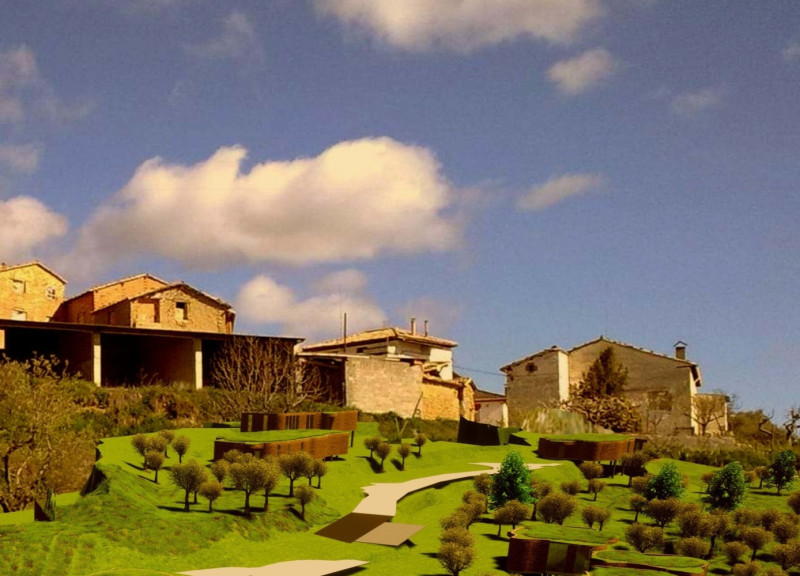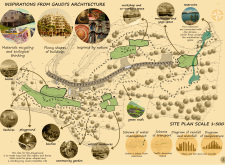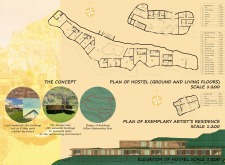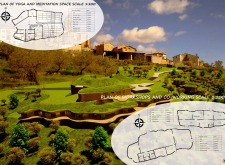5 key facts about this project
The design is situated in a landscape that emphasizes organic and ecological principles, reflecting a clear influence from Antoni Gaudí's unique style. It includes several functions, such as a hostel, community garden, playground, workshop, co-working space, and meditation area. The overall concept focuses on fluid, curving forms that echo natural elements, creating an inviting environment that encourages interaction among its users.
Design Concept
The architecture features flowing shapes that blend with the surrounding nature. This connection with the landscape creates a sense of continuity. Curved lines enhance the visual appeal of the buildings while promoting movement and exploration throughout the site. The organic forms allow the structure to feel alive, as if growing from the earth.
Functional Spaces
Key areas of the design are thoughtfully arranged to promote community interaction. The hostel offers visitors comfortable accommodation, while the community garden fosters collaboration among residents. The playground stands out with its imaginative play structures. Toys appear as if inspired by nature, with a slide shaped like a spine and climbing frames reminiscent of ribs. These playful elements make the space engaging for children and families.
Environmental Integration
Two reservoirs are an important part of the design. They are connected by a stream that flows beneath the meditation area. This system supports sustainable water management, reflecting a commitment to ecological balance. The arrangement of the buildings follows the site's contours, enhancing accessibility and creating a smooth transition between gathering spaces and private areas.
Sustainable Elements
Green roofs are incorporated into the design, helping with energy efficiency and supporting local biodiversity. By integrating plants into the building tops, the design helps regulate temperature and manage rainwater. There is a focus on using local resources, showing a dedication to minimizing environmental impact while enhancing the overall user experience.
The meditation space offers a quiet place for reflection, bringing together the goals of community engagement and a harmonious relationship with nature.




















































